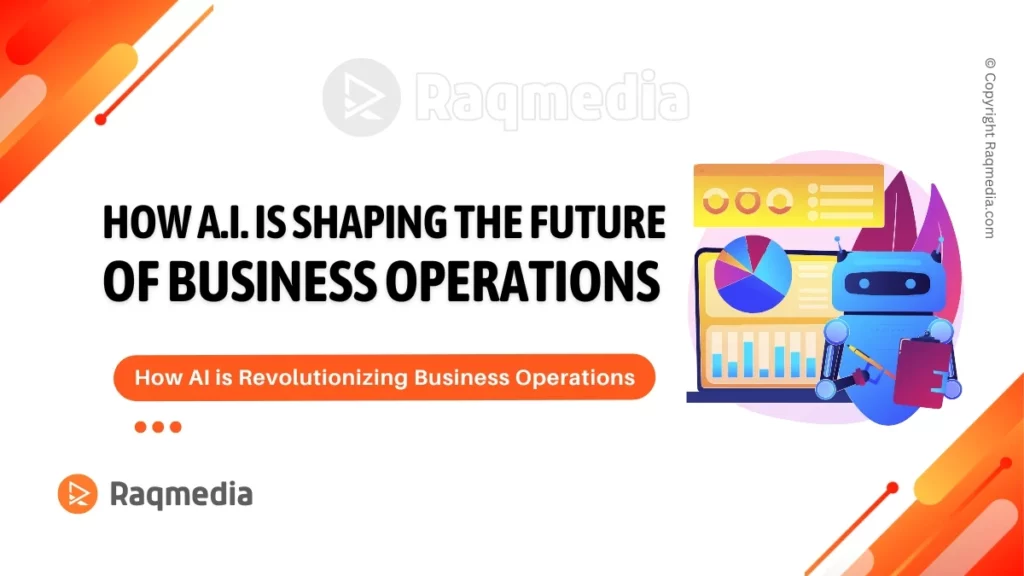Artificial intelligence (AI) has become a game-changer in today's rapidly evolving business landscape, offering transformative potential across various industries. With its ability to process large volumes of data, identify patterns, and make intelligent decisions, AI has the power to revolutionize business operations and drive growth. This article explores some of the most innovative business ideas that utilize AI, presenting opportunities for entrepreneurs and forward-thinking organizations.

How AI is Shaping the Future of Business Operations
Artificial intelligence (AI) is rapidly transforming business operations, revolutionizing the way companies operate. Through advanced data processing, learning from patterns, and making informed decisions, AI streamlines existing processes and fosters new growth opportunities.
Automation is a key factor driving this transformation. AI-driven algorithms and machine learning replace time-consuming manual tasks, reducing costs and improving efficiency. With automation in place, businesses can redirect resources towards strategic initiatives.
As AI matures, its impact on business operations will continue to grow. Strategic adoption of AI technologies can position businesses at the forefront of innovation, unlocking their true potential in the dynamic market landscape.
Dive into the future of business operations with AI. Learn how it's transforming industries, streamlining processes, and driving unprecedented results.
AI-Powered Solutions for E-Commerce
The e-commerce industry has experienced significant growth, and AI-powered solutions have emerged as essential tools to enhance customer experiences and optimize business operations. Here are two key areas where AI can revolutionize e-commerce:
AI-driven personalization for online shopping
In the highly competitive world of e-commerce, personalization is crucial for capturing and retaining customers. AI algorithms can analyze extensive customer data, including browsing behavior, purchase history, and demographics, to deliver personalized product recommendations. By understanding individual preferences and interests, businesses can create tailored shopping experiences that increase customer satisfaction and drive sales.
Customized product recommendations based on user preferences:
AI allows e-commerce platforms to recommend products that align with each customer's unique tastes and needs. By employing advanced recommendation algorithms, businesses can offer personalized suggestions, showcasing items that customers are most likely to be interested in. This enhances the shopping experience and increases the chances of upselling and cross-selling.
Tailored shopping experiences through virtual shopping assistants:
Virtual shopping assistants powered by AI have gained popularity in the e-commerce space. These chatbot-like interfaces can interact with customers, understand their queries, and provide real-time assistance. By leveraging natural language processing and machine learning algorithms, virtual shopping assistants can guide customers through the shopping process, answer product-related questions, and offer personalized recommendations, simulating a personalized in-store experience.
AI chatbots for customer support
Customer support is critical for any e-commerce business, and AI chatbots have emerged as efficient and cost-effective solutions to handle customer queries and issues.
Automated customer service interactions:
AI-powered chatbots can handle a wide range of customer inquiries, from order tracking and returns to general product inquiries. By employing natural language processing and machine learning techniques, chatbots can understand and respond to customer queries in a conversational manner, providing quick and accurate solutions. This reduces the burden on human customer support agents and ensures round-the-clock availability for customers, improving response time and overall satisfaction.
Enhanced response time and 24/7 availability:
Unlike human agents, AI chatbots can handle multiple customer interactions simultaneously, resulting in faster response times and reduced waiting periods. Additionally, AI chatbots can operate 24/7, providing uninterrupted customer support, regardless of time zones or business hours. This level of availability and responsiveness contributes to improved customer experiences and builds trust and loyalty.
By leveraging AI-powered e-commerce solutions, businesses can enhance their online presence, offer personalized experiences, and streamline customer support processes. These advancements benefit both customers and e-commerce businesses by driving revenue growth and competitive advantage.
AI-Based Data Analysis and Insights
Data analysis plays a crucial role in making informed business decisions, and AI has the potential to unlock valuable insights from vast datasets. Here are two areas where AI-based data analysis can revolutionize business operations:
Predictive analytics for business forecasting

Predictive analytics powered by AI algorithms enables businesses to forecast future trends, anticipate customer behavior, and optimize various operational aspects.
Leveraging AI algorithms to anticipate market trends:
By analyzing historical data, market trends, and external factors, AI algorithms can generate predictive models that help businesses make informed decisions. These models can forecast demand patterns, identify emerging market trends, and enable businesses to stay ahead of the competition. By understanding market dynamics, businesses can optimize inventory levels, manage supply chains more efficiently, and make strategic pricing decisions.
The Future of Business Operations: Optimizing inventory management
AI-powered fraud detection and risk management
Fraudulent activities and risks pose significant challenges to businesses across various sectors. AI-powered data analysis can help identify patterns and anomalies, enabling businesses to detect and mitigate risks effectively.
Fraud detection and prevention:
AI algorithms can analyze large volumes of transactional data to identify patterns and detect potential fraudulent activities. By leveraging machine learning techniques, AI can continuously learn from new data and adapt to evolving fraud patterns. This helps businesses proactively detect and prevent fraudulent transactions, protecting both themselves and their customers.
Risk assessment and mitigation:
AI can also assist in assessing and mitigating risks in various business processes. By analyzing data from multiple sources, including financial records, market trends, and customer behavior, AI algorithms can identify potential risks and provide recommendations for risk mitigation strategies. This enables businesses to make informed decisions, minimize risks, and protect their financial interests.
AI-based data analysis and insights offer businesses a competitive edge by providing actionable information for strategic decision-making, risk management, and fraud prevention. By harnessing the power of AI, organizations can optimize their operations, improve efficiency, and drive profitability.
AI-Enabled Process Automation
Automation has long been a key driver of efficiency in businesses, and AI takes process automation to a new level by adding intelligence and adaptability. Here are two areas where AI-enabled process automation can revolutionize business operations:
Intelligent document processing
Many business processes involve handling and processing vast amounts of data from various documents, such as invoices, contracts, and forms. AI-powered intelligent document processing automates these tasks, saving time and reducing errors.
Automated data extraction:
AI algorithms can extract relevant information from documents with high accuracy, eliminating the need for manual data entry. By leveraging techniques like optical character recognition (OCR) and natural language processing (NLP), AI can interpret and extract data from diverse document formats, even handwritten text. This streamlines data processing and reduces human error, leading to increased productivity and improved data quality.
Contextual understanding and decision-making:
AI can go beyond data extraction and understand the context of the information within documents. This enables intelligent decision-making and automated workflows based on the extracted data. For example, AI-powered systems can automatically route invoices for approval, classify documents into relevant categories, or initiate appropriate actions based on the content of contracts. By automating these processes, businesses can significantly improve operational efficiency and reduce manual intervention.
Intelligent supply chain management
Supply chain management involves complex processes, including demand forecasting, inventory management, and logistics. AI-enabled automation can optimize these processes and enhance supply chain efficiency.
Demand forecasting and inventory optimization:

AI algorithms can analyze historical data, market trends, and external factors to forecast demand accurately. This enables businesses to optimize inventory levels, minimize stockouts, and reduce excess inventory. By automating demand forecasting, businesses can align their supply chain activities with actual customer demand, leading to cost savings and improved customer satisfaction.
Intelligent logistics and route optimization:
AI can optimize logistics operations by analyzing factors like traffic patterns, delivery locations, and transportation costs. AI algorithms can suggest the most efficient routes, considering real-time conditions, to minimize transportation time and costs. This helps businesses streamline their logistics operations, improve on-time delivery rates, and enhance customer experiences.
AI-enabled process automation empowers businesses to streamline operations, reduce manual effort, and improve efficiency. By automating repetitive and time-consuming tasks, organizations can focus on value-added activities, enhance productivity, and drive innovation.
Recap
The potential of AI to transform business operations is immense. From enhancing personalized shopping experiences in e-commerce to enabling data-driven decision-making and revolutionizing process automation, AI offers innovative solutions across various industries. Entrepreneurs and organizations that embrace AI can gain a competitive edge, improve customer experiences, and unlock new growth opportunities. By leveraging the power of AI, businesses can pave the way for a future that is intelligent, efficient, and technologically advanced.










🚀 Unlock the secrets of tomorrow’s business world with #AI!
🤖 Discover how it’s shaping operations and driving growth. Read more at 🔗 https://www.raqmedia.com/how-ai-is-shaping-the-future-of-business/
📚 Don’t miss out, follow and like for more exciting updates! 📲👍
.
#raqmedia #AI #automation #business #eCommerce #dataanalysis #processautomation #innovation